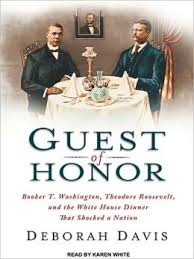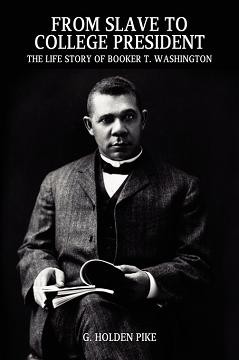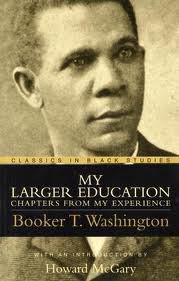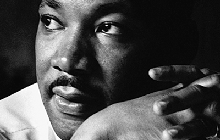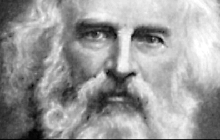Such prominence and achievement was bound to attract enemies. When President Theodore Roosevelt invited Booker T. to dinner at the White House—to some an unforgivable breach of racial etiquette—a group from Louisiana hired a black man to go to Tuskegee to assassinate him. Fortunately, Booker T. was fundraising up north,
Booker T. would later write, “Education…that gives one physical courage to stand in front of the cannon and fails to give him moral courage to stand up in defense of right and justice is a failure.”
Booker T. Washington died on November 14, 1915. “I mourn with you today as one who shares your sorrow,” noted Andrew Carnegie upon his death. “America has lost one of her best and greatest citizens. History is to tell of two Washingtons. One the father of his country, the other the leader of his race.”

Statue of Booker T. Washington, entitled ‘Lifting the Veil of Ignorance’ (by Charles Keck) at Tuskegee University, Tuskegee, Alabama, 2010. (Photo by Carol M. Highsmith/Buyenlarge/Getty Images)
This Booker T. Washington monument entitled “Lifting the Veil of Ignorance” depicts a terrified slave holding a book (representing education) and crouching on a plow and anvil (representing the tools of agriculture and industry). It offers the following words of remembrance:
“He lifted the Veil of Ignorance from his people and pointed the way to progress through education and industry.”




